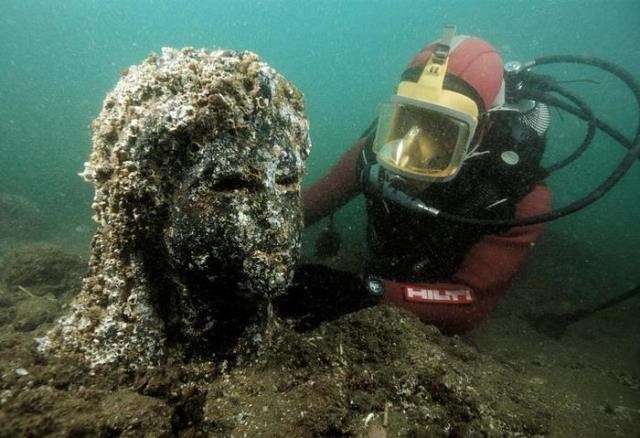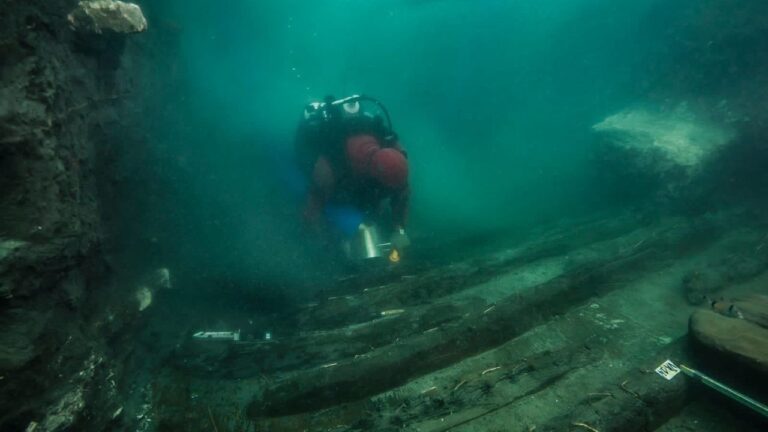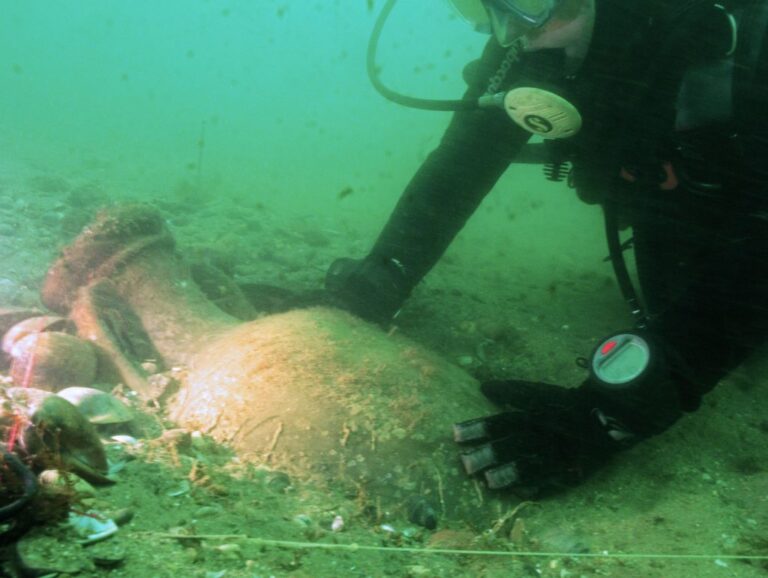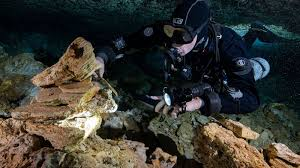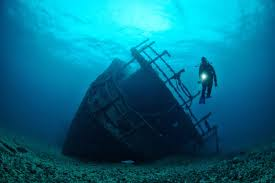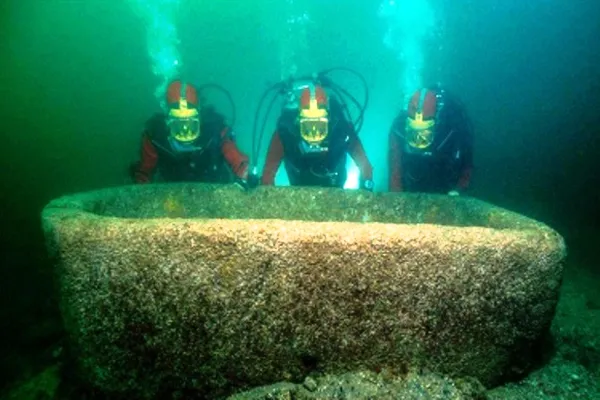Sailing Through the Centuries: Exploring Maritime History
Maritime history has played a pivotal role in the development and progress of civilizations throughout the centuries. The exploration and discovery of new lands, the establishment of trade routes, and the exchange of ideas and culture all owe their existence to the brave sailors and seafarers who paved the way. Understanding maritime history is crucial in comprehending the evolution of civilizations and appreciating the global connections that have shaped our world.
The importance of maritime history cannot be overstated. The ability to navigate the vast oceans and seas has allowed civilizations to expand their horizons, opening up new opportunities for trade, exploration, and cultural exchange. Maritime history has provided a window into the technology, ships, and navigational methods used by ancient seafaring civilizations, including the Phoenicians, Egyptians, and Greeks, highlighting their significant contributions to the development of trade routes and the spread of ideas.
Studying maritime history offers invaluable insights into the early mariners and their achievements. Exploration during the Age of Discovery led to the unearthing of new lands and the establishment of global trade routes. Brave explorers such as Christopher Columbus, Vasco da Gama, and Ferdinand Magellan ventured into uncharted territories, driven by curiosity, wealth, and a quest for glory. Their expeditions and discoveries paved the way for further maritime exploration and shaped world history.
Maritime history also encompasses the extensive networks of trade routes that emerged throughout history. The Silk Road and the Spice Route, for example, facilitated the exchange of goods, ideas, and cultures between the East and the West. Port cities such as Venice, Istanbul, and Alexandria flourished as major maritime hubs, connecting different regions of the world and contributing significantly to the economies and political landscapes of the time.
Naval warfare has played a significant role in shaping world history as well. Notable naval battles such as the Battle of Trafalgar, the Battle of Salamis, and the Battle of Midway have had profound consequences on the outcome of conflicts and the balance of power between nations. Technological advancements in naval warfare, including the introduction of better ship designs, weaponry, and strategies, have revolutionized warfare at sea.
Moving into the modern era, maritime advancements continue to shape our world. Shipping and transportation play a crucial role in global economies, facilitating the movement of goods and people across continents. However, the modern maritime industry also faces environmental challenges, such as pollution and overfishing, which need to be addressed for the sustainability of our oceans.
In conclusion, studying maritime history is essential in understanding the development of civilizations and the global connections that have shaped our world. From the early mariners and their achievements to the age of exploration, trade routes and global networks, naval warfare, and modern advancements, maritime history serves as a rich heritage that deserves exploration and appreciation. Let us delve into the depths of maritime history and discover the fascinating stories that lie beneath the waves.
Table of Contents
The Early Mariners: Ancient Seafaring Civilizations
The exploration of early civilizations’ maritime achievements such as the Phoenicians, Egyptians, and Greeks offers us a glimpse into the incredible advancements and ingenuity of these ancient seafaring cultures. These civilizations recognized the importance of maritime exploration and utilized technologies, ships, and navigational methods that were remarkable for their time.
The Phoenicians, who were skilled traders and navigators, are known for their creation of the first alphabet and their development of sailing techniques such as the use of the North Star for navigation. They not only established extensive trading networks across the Mediterranean but also ventured beyond, reaching as far as Britain and West Africa.
The Egyptians also played a significant role in maritime history, with their mastery of shipbuilding and navigation techniques along the Nile River and the Red Sea. Their advanced ships and navigational methods allowed them to trade and explore neighboring regions, including the Levant and East Africa. The Egyptians also utilized the annual flooding of the Nile to their advantage, using it as a means of transportation and trade.
Meanwhile, the Greeks are renowned for their exploration and colonization efforts throughout the Mediterranean. They developed fast and agile ships known as triremes that featured three rows of oars, enabling them to navigate the rocky coastlines with ease. The Greeks established numerous colonies and actively participated in trade, leading to cultural exchanges and the spread of ideas across different regions.
These ancient seafaring civilizations made significant contributions to trade, cultural exchanges, and the spreading of ideas. Their maritime achievements not only influenced their own development but also impacted neighboring civilizations, fostering connections and exchanges that shaped the course of history. By studying and understanding the technologies, ships, and navigational methods employed by these civilizations, we gain valuable insights into the development of seafaring and its profound impact on the growth of civilizations.
The Age of Discovery: Explorers and Voyages
In the Age of Exploration, maritime history took a significant turn, as daring explorers embarked on voyages that would forever shape the course of human civilization. These intrepid sailors ventured into the unknown, driven by a thirst for adventure, a desire for wealth and glory, and a curiosity to uncover the mysteries of the world.
One of the most well-known explorers of this era was Christopher Columbus, whose voyage in 1492 marked the beginning of European colonization in the Americas. Columbus, driven by a motivation to find a new trade route to Asia, instead stumbled upon the New World, forever changing the course of history.
Another notable explorer was Vasco da Gama, a Portuguese navigator who successfully sailed around the Cape of Good Hope, opening up the sea route to India. His discovery not only revolutionized trade between Europe and Asia but also laid the foundation for Portugal’s powerful maritime empire.
Ferdinand Magellan, a Portuguese explorer, is often celebrated for his ambitious expedition, during which his crew became the first to circumnavigate the globe. This epic voyage not only solidified the earth’s spherical shape but also revealed the vastness of the world’s oceans, expanding maritime exploration to new heights.
These explorers were driven by various motivations, including economic gain, political power, and the curiosity to unravel the mysteries of the world. Their expeditions resulted in groundbreaking discoveries, such as the New World, the sea route to India, and the true size of the Earth.
The consequences of these voyages were profound and far-reaching. The Age of Discovery not only led to the establishment of vast colonial empires but also sparked significant advances in navigation, cartography, and shipbuilding. Furthermore, these voyages initiated intense cultural exchanges, as ideas, goods, and people flowed across the seas, forever altering the course of maritime exploration and world history.
As we delve into maritime history, it is essential to acknowledge the pivotal role that these explorers and their voyages played in shaping our present-day world. Their daring spirit and thirst for knowledge paved the way for the development of civilizations, fostering a deeper understanding of our interconnectedness and the vastness of the world’s oceans. Let us reflect on their legacies and continue to explore and appreciate the rich heritage of maritime history.
Trade Routes and Global Connections: Maritime Networks
Maritime networks have played a crucial role in shaping the course of history, facilitating global trade, and fostering cultural exchange. One of the most significant trade routes in history was the Silk Road, which connected East Asia with the Mediterranean. This ancient network of land and sea routes allowed for the exchange of goods, ideas, and knowledge between the civilizations of China, India, Persia, and Rome. The Silk Road not only facilitated the trade of silk, but also introduced spices, precious metals, and other luxury goods to different regions.
Another prominent trade route was the Spice Route, which connected Europe, Africa, and Asia. This maritime network was crucial in the exchange of spices, such as cinnamon, pepper, and cloves, as well as other commodities like textiles, precious metals, and exotic animals. The Spice Route, which spanned across the Indian Ocean and the Red Sea, opened up possibilities for trade and cultural interactions between civilizations like the Indian subcontinent, Arabia, Egypt, and East Africa.
As these maritime networks developed, key ports and cities emerged as major maritime hubs. One such example is Alexandria, located on the Mediterranean coast of Egypt. With its strategic location and excellent harbor, Alexandria became a bustling center of trade and knowledge exchange, attracting merchants, scholars, and adventurers from various civilizations. This city, founded by Alexander the Great, stood as a beacon of commerce and cultural diversity, fostering connections between the East and the West.
The establishment of maritime networks had profound economic, political, and social effects on the civilizations involved. Economically, these networks not only spurred the growth of trade but also led to the development of banking systems, the establishment of merchant guilds, and the expansion of industries. Politically, the control over these trade routes and maritime hubs became a significant source of power and wealth for nations. For instance, the rise of seafaring nations like Portugal and the Netherlands in the 15th and 16th centuries was largely influenced by their dominance over key trading ports.
Socially, the maritime networks fostered cultural exchange and the spread of ideas. Through trade, people from different regions were exposed to new languages, religions, customs, and technologies. This cross-cultural interaction led to the diffusion of knowledge and the enrichment of diverse societies. Notably, the encounter between Eastern and Western civilizations during the Silk Road and Spice Route eras contributed to the exchange of scientific, philosophical, and artistic ideas, paving the way for significant advancements in various fields.
In conclusion, maritime networks have played a vital role in facilitating global trade and cultural exchange throughout history. The Silk Road and Spice Route stand as remarkable examples of how trade routes shaped the development of civilizations. Additionally, the emergence of key ports and cities as major maritime hubs further accelerated these interactions. The economic, political, and social effects of these networks continue to resonate today, underscoring the significance of studying maritime history in understanding the world’s interconnected past. Let us cherish and explore the rich heritage of maritime history, appreciating the contributions made by ancient seafarers in sailing through the centuries.
Maritime Warfare: Naval Battles and Strategies
Naval warfare has played a significant role in shaping world history, influencing not only the outcome of battles but also the expansion and decline of civilizations. The significance of naval warfare is evident in the numerous notable battles that have occurred throughout history. The Battle of Trafalgar, for instance, stands as a pivotal moment in naval history, where the British Navy, led by Admiral Lord Nelson, defeated the combined forces of the French and Spanish fleets. This victory solidified British supremacy at sea and contributed to their dominance as a global maritime power during the Napoleonic era.
Another historic naval battle of great importance was the Battle of Salamis. Fought between the naval forces of Ancient Greece and Persia, this battle showcased the strategic brilliance of the Greeks and the crucial impact of naval power on world history. The Greek victory at Salamis halted the Persian invasion and allowed for the flourishing of Greek civilization and the preservation of Western traditions.
Moving forward in time, the Battle of Midway during World War II demonstrated the critical role of naval warfare in a global conflict. This battle between the United States and Japan marked a turning point in the Pacific theater, as the American victory dealt a substantial blow to the Japanese Navy and halted their expansion in the region. Technological advancements in naval warfare, such as aircraft carriers, played a vital role in shaping the strategies and outcomes of battles like Midway.
Analyzing these notable naval battles and strategies allows us to understand not only the tactics employed by different civilizations but also the larger context in which these battles took place. Technological advancements, such as the development of ironclad warships and torpedoes, revolutionized naval warfare and forced nations to adapt their strategies to effectively utilize these new tools of combat. These advancements extended into modern times with the introduction of missile systems, submarines, and aircraft carriers, further transforming naval warfare and its impact on global conflicts.
In conclusion, the significance of naval warfare in shaping world history cannot be underestimated. From ancient civilizations to modern times, naval battles and strategies have played a crucial role in determining the rise and fall of civilizations, the establishment of empires, and the progression of global conflicts. Understanding the influence of technological advancements in naval warfare allows us to appreciate the complexities of strategy and the ever-evolving nature of maritime combat. It is through the exploration of maritime warfare that we gain a deeper appreciation of the role of the sea in human history and the profound impact it continues to have on our world today.
Modern Maritime Advancements: Shipping, Transportation, and Challenges
In the modern era, the field of maritime transportation has experienced significant advancements, revolutionizing the way goods are transported across the globe. One of these advancements is containerization, a method that has streamlined the shipping process and increased efficiency. By standardizing the shipping containers used to transport goods, containerization has made it easier to load and unload cargo from ships, trucks, and trains, reducing costs and saving valuable time.
Another notable development in modern maritime advancements is the introduction of nuclear-powered ships. These vessels utilize nuclear energy as a source of propulsion, offering a more sustainable alternative to traditional fuel-powered ships. Nuclear-powered ships are capable of travelling longer distances without the need for frequent refueling, making them ideal for long-haul journeys.
The importance of shipping and transportation in global economies cannot be overstated. The shipping industry serves as the backbone of international trade, facilitating the movement of goods between countries and enabling economic growth. Without efficient shipping and transportation systems, global trade would be severely hindered, impacting economies and livelihoods worldwide.
However, along with these advancements, the modern maritime industry also faces a number of environmental challenges. Pollution from shipping activities, such as oil spills and emissions from ships’ engines, poses a threat to marine ecosystems and the overall health of our planet. Furthermore, overfishing has become a pressing issue, depleting fish populations and disrupting marine ecosystems.
Efforts are being made to address these challenges and promote sustainability in the maritime industry. Strict regulations and international agreements aim to reduce pollution from ships, while sustainable fishing practices and marine conservation efforts are being undertaken to protect marine biodiversity.
In conclusion, modern maritime advancements in shipping and transportation have brought about significant changes in the way goods are transported worldwide. Containerization and nuclear-powered ships have increased efficiency and sustainability in the industry. However, it is crucial to address the environmental challenges faced by the maritime industry, including pollution and overfishing, in order to ensure the long-term viability of our oceans and marine ecosystems. By exploring and appreciating the rich heritage of maritime history, we can better understand the importance of sustainable maritime practices for the development of civilizations and the well-being of our planet.
Conclusion
In conclusion, maritime history holds immense significance in understanding the development of civilizations throughout the centuries. By studying maritime history, we can gain valuable insights into the impact of seafaring civilizations on the world. From the early mariners of ancient civilizations like the Phoenicians, Egyptians, and Greeks to the explorers of the Age of Discovery, maritime achievements have shaped the course of history.
Exploring maritime history allows us to appreciate the technological advancements made by these ancient civilizations, including their remarkable ships and navigational methods. Furthermore, it highlights their contributions to trade, cultural exchanges, and the spreading of ideas. These interactions between civilizations were only made possible through maritime networks and trade routes, such as the Silk Road and the Spice Route.
Naval warfare also played a significant role in shaping world history. Notable naval battles and strategies, such as the Battle of Trafalgar, the Battle of Salamis, and the Battle of Midway, showcased the importance of maritime power in determining the course of conflicts and influencing the fate of nations. Technological advancements in naval warfare have continually evolved, impacting strategies and the outcomes of battles.
In the modern era, maritime advancements in shipping and transportation have become crucial for global economies. Containerization and nuclear-powered ships have revolutionized the efficiency and capacity of maritime trade. However, along with these advancements come environmental challenges, including pollution and overfishing. It is essential to address these challenges to ensure a sustainable future for the maritime industry.
In light of the significance of maritime history, it is crucial to explore and appreciate its rich heritage. By delving into the study of maritime history, we gain a deeper understanding of the development of civilizations and the interconnectedness of our world. So, let us embark on a journey to unravel the secrets of maritime history and cherish the remarkable legacy left by our seafaring ancestors.

